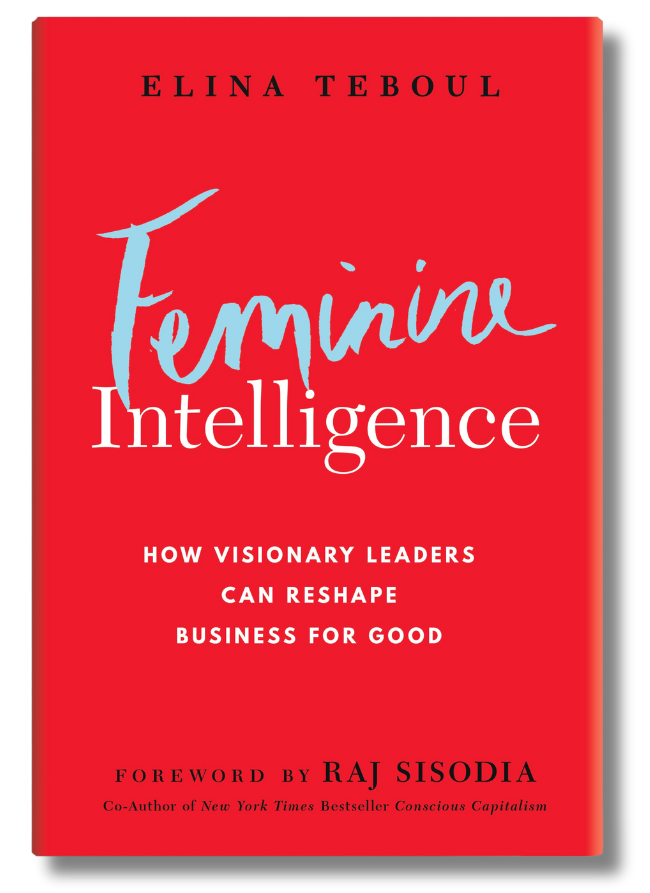Last week, as I watched my children play in the vegetable garden, I was struck by the breathtaking beauty of the earth. The sun’s warm rays illuminated the lush greens of the plants and the rich brown of the soil, filling me with a deep sense of connection to our planet and its many wonders.
It’s sobering to realize that as a society, we’re borrowing from our children, and we call it economic growth. But we can’t do business on a dead planet. While we may extract short-term gains, we lose sight of the bigger picture and our future.
As a psychologist and leadership advisor, I always come back to the fundamental question of what stops leaders in business from having the courage to stand up for an eco-centric approach? How can they play the long game and resist the pressures of short-term shareholders demanding quick returns at the cost of our futures and planet?
The concept of feminine intelligence is crucial here. As I’ve written previously, the feminine is not connected to gender, but rather a principle in each of us. Every person, regardless of gender, lives their life in the polarity between the feminine and masculine energies. We require a balance of both for psychological health – individually and collectively. It’s like yin and yang, but with less acupuncture. The further our society moves from traditional and restrictive gender roles, the more we can accept this androgyny of the spirit and the need for integration and respect of the feminine principle in each human being.
As a society, we have embraced a hypermasculine approach to life and business – one that puts profits at the center – above that of the environment. Money above home planet. And there is a strong connection between the oppression of the feminine principle and the destruction of the environment. The patriarchal mindset, which prioritizes domination and control over nature and the feminine, is at the root of the problem. The exploitation of the earth and the subjugation of the feminine are intertwined, and the solution to one problem requires the resolution of the other.
Feminine values, such as nurturing, compassion, and interconnectedness, are essential to environmental protection. Feminine intelligence, which values collaboration and interdependence over competition and domination, is necessary for creating a sustainable future. The environment, our planet, is where we all live – each and every one of us has a mutual interest in preserving it; it is the one thing that truly connects us all.
In business, an eco-centric approach means recognizing that a healthy planet is essential for long-term success, and it is possible to run a profitable business while minimizing its impact on the environment. It is time to create and evolve more than we take and destroy.
As a former lawyer, I always think legal structure is an excellent place to start in adopting an eco-centric mindset. Patagonia is perhaps the most famous example of a Benefit Corporation, a type of for-profit company that is legally required to consider the impact of its decisions not only on shareholders but also on workers, communities, and the environment. In 2022, Patagonia announced a new ownership structure. Its founder, and outspoken climate activist Yvon Chouinard, gave 98% of the $3 billion fashion brand’s shares to fund the Holdfast Collective, with the goal to invest all the excess profits in the planet. Chouinard proudly stated that “If we have any hope of a thriving planet – much less a thriving business – 50 years from now, it is going to take all of us doing what we can with the resources we have.”
And it’s not just big corporations that can make a difference. Small businesses and startups can also take steps to be more eco-centric. For example, Faith in Nature, a UK-based startup that makes soaps and other beauty and household items, recently became the first company to formally bring on a non-executive director to the company’s board to speak on behalf of nature and give nature a formal vote on company decisions.
Of course, taking such bold actions requires a lot of legal maneuvering. But organizations like the Earth Law Center (ELC) can help businesses navigate these waters and ensure they’re in line with the Rights of Nature philosophy. As a coach and consultant, I’ve had the privilege of working with the ELC and their executive director, Grant Wilson. They’re doing incredible work to promote eco-centric policies and practices, and I’ve been honored to be a part of their mission. In fact, their work (along with partners like Lawyers in Nature) was instrumental in helping Faith in Nature establish the legal foundation necessary to bring on the Nature Director to their Board.
In an interview last month, Grant explained that it can be challenging to determine who should be authorized to speak on behalf of nature, as humans have inherent biases and limited knowledge about what nature truly requires. Therefore, to overcome these limitations, the responsibility of acting as proxies for nature has been divided between two people. This helps to ensure that the decision-making process is more objective and that the interests of nature are better represented.
If Patagonia and Faith in Nature can create profitable, sustainable businesses and care for the environment, what can you do?
Today, I invite you to investigate your heart, journey into yourself, and ask yourself these questions:
- What incremental changes can I make in my business to be more environmentally sustainable?
- What monetary benefits will my business gain from taking a more eco-centric approach? Will my customers be more loyal to the brand? Will my taxes be lower?
- What emotions do I feel when I consider taking these actions? Why?
As we celebrate #earthday this month, let us remember the words of the Native American proverb: “We do not inherit the earth from our ancestors, we borrow it from our children.”
So, let’s embrace our feminine intelligence, take a more eco-centric approach to business, and start making a difference. Because as the saying goes, there’s no planet B.
With love and hope for a brighter future,
Elina

